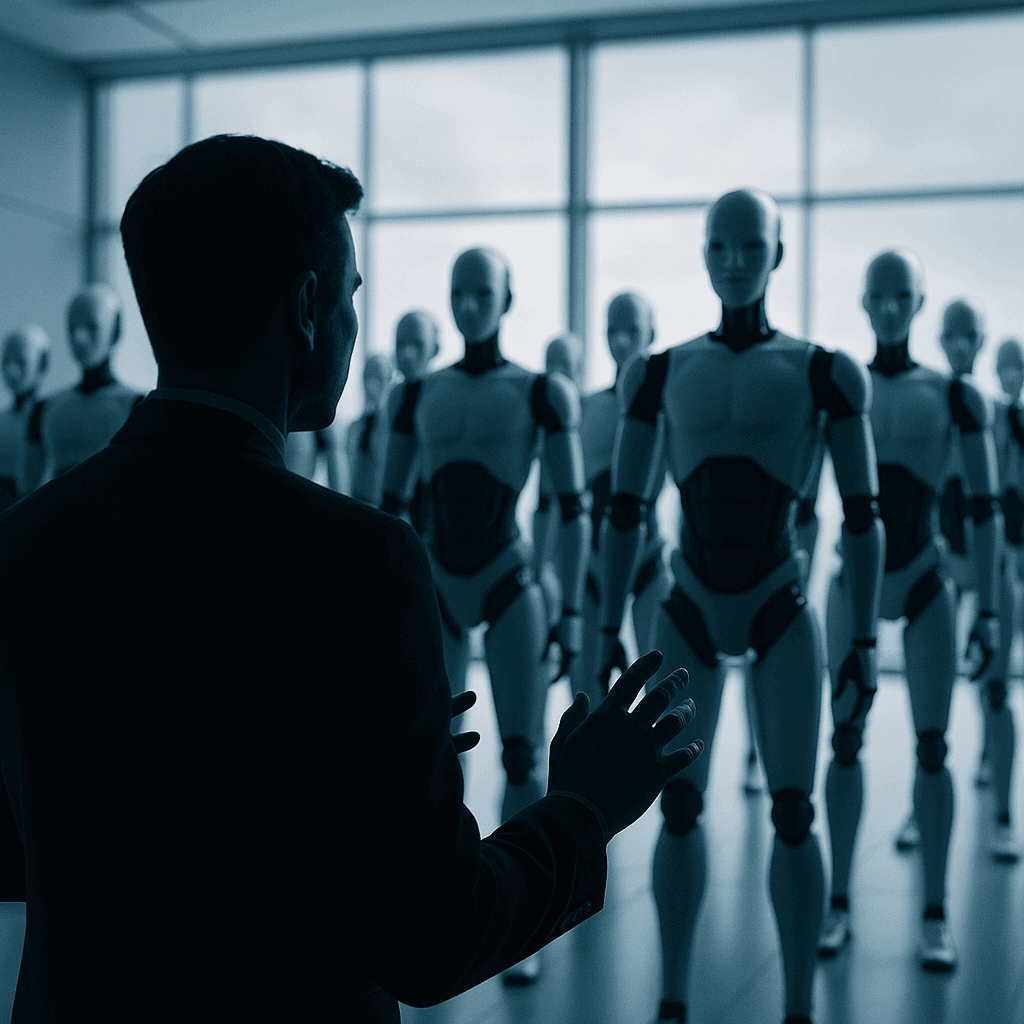Elon Musk just tied his unprecedented $1 trillion Tesla pay package to something that sounds ripped from science fiction: maintaining "strong influence" over what he repeatedly called a "robot army." During Wednesday's earnings call, the world's richest man made his most explicit argument yet for why shareholders should hand him both massive compensation and expanded voting control over the company's humanoid robot ambitions.
Tesla CEO Elon Musk just turned a routine earnings call into something that sounds like the opening scene of a dystopian thriller. During Wednesday's investor update, Musk made his most direct pitch yet for why shareholders should approve his staggering $1 trillion compensation package - and it all comes down to robots.
"My fundamental concern with regard to how much voting control I have at Tesla is, if I go ahead and build this enormous robot army, can I just be ousted at some point in the future?" Musk said, according to the full earnings call transcript. "If we build this robot army, do I have at least a strong influence over this robot army? Not control, but a strong influence."
The stakes couldn't be higher. Tesla shareholders will vote in November on a board proposal that would pay Musk $1 trillion over the next decade while boosting his ownership stake from 13% to 25%. But there's a catch - Musk only gets paid if he hits a series of ambitious milestones, including delivering 20 million vehicles, operating 1 million robotaxis, achieving an $8.5 trillion valuation, and crucially, delivering 1 million Optimus humanoid robots.
Musk's language around the Optimus project has grown increasingly militant, even as he continues to pitch the robots as benevolent helpers. "I don't feel comfortable building that robot army unless I have a strong influence," he told investors, using the phrase "robot army" multiple times during the call.
The Tesla CEO has long positioned Optimus as humanity's salvation from manual labor. "Working will be optional, like growing your own vegetables, instead of buying them from the store," he posted on X this week. During Wednesday's call, he painted an even grander vision: "Tesla's robots would actually create a world where there is no poverty, where everyone has access to the finest medical care."
But the reality check comes in Tesla's actual production timeline. While the company initially set internal goals to produce 5,000 Optimus units this year, The Information reported that Tesla scaled back those plans over the summer. On Wednesday, Musk admitted the company would only have a "production-intent prototype" ready by February or March, with full-scale production starting at the end of 2026.












